Archive for the ‘Silence’ Category
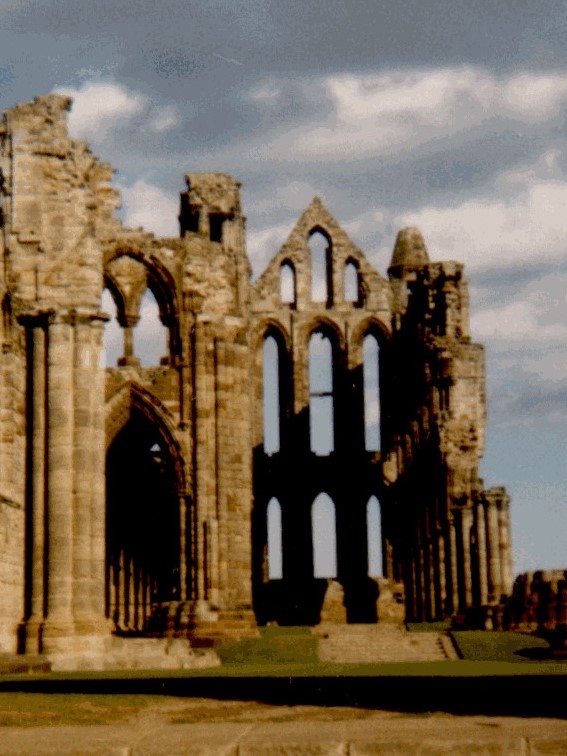
When the Whole Creation groans in travail . . .
O Lord, in the agony of our affliction, how shall we live? *
We long for the melons, leeks, and riches we once knew.
How shall we sing the Lord’s song in this world become alien to all?
The streets empty and silent; children and laborers sent home; *
We hide from the wrath of the virus.
Ahhhh….says the Earth: “Be still: hear God’s Voice in the silence.”
Now young and old lay dying, *
lungs gasping for life-giving breath.
Ahhhh….say the Birds: “The skies are blue, and we will sing.”
Now the seas rise up in great waves; *
orchards die from thirst, and forests burn to ash.
Ahhhh….say the Wise: “All created things have their season.”
We have plundered the earth of her riches, *
crafting idols by the might of our minds.
Ahhhh….says the Lord, “Have no other gods before me.”
The homeless, hungry, and suffering, fill our streets; *
We fear the stranger, and cast out the different.
Ahhhh…..says the Lamb, “As you do to the least of these, you do to Me.”
Violence stalks our villages, slaughtering even our children; *
rulers scorn our laws and steal the hearts of our people.
Ahhhh…..says the Lord God, “Seek the light and peace of My presence.”
Fragments of memory slip away from beloved elders, *
as historical monuments fall, giving birth to a cultural dementia.
Ahhhh….says our Master, “Do this in remembrance of Me.”
How shall we teach our unborn children of God’s holy mysteries, *
when we have forgotten the stories of faith?
Ahhhh….says the Spirit, “Baptize them, anoint them, break bread together.”
But how can we baptize, bless, anoint, and comfort, *
when we cannot touch flesh made in God’s Image?
Ahhhh….says Thomas, “Do not cling; trust my vision of the Risen Lord.”
The temples deserted, all rites suspended; *
How shall we pray? How can Mother Church survive?
Ahhhh….says Christ Jesus, “My Holy Dwelling is within your own heart.”
O Lord, in your great mercy *
lead us to the path of repentance,
and be gracious unto our sins.
O Lord, in your great mercy *
cleanse us of all our iniquities
and purify our passions.
O Lord, in your great mercy *
visit and heal our infirmities,
and transfigure our souls by Your Love.
. . . that neither death, nor life, nor angels, nor principalities,
nor things present, nor things to come, nor powers,
nor height, nor depth, nor anything else in all creation,
will be able to separate us from the love of God in Christ our Lord.
(Romans 8: 22…38)
The Rev. Susan Creighton, Anchorite
Feast of the Dormition of the Blessed Theotokos, 2020
(I preached this sermon on June 1st, 1982, the first anniversary of my ordination to the priesthood. The Rev. Susan Creighton+)
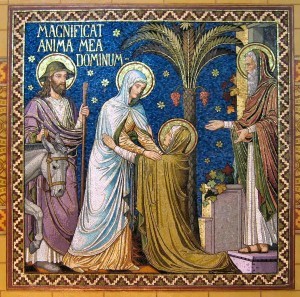
My Dear Cousin:
I dictate this letter with faltering voice and with a great sense of weariness, for the years have multiplied upon my head. I am so old now that I’ve forgotten just how many years there have been. But I’m not so old that I’ve forgotten everything. In fact, it seems the events of long ago happened only yesterday, and now as the dusk of my life draws to a close, and the soft darkness of death approaches, I feel moved to share some of these memories with you.
For you see, dear cousin, you were really the only one who fully understood; and of course you were the only one who could—for you, too, were a woman, and a mother—and you, too, have borne a son dear to your heart.
That day long ago when you visited me so unexpectedly is as clear in my memory as the summer sun. Then, as now, we lived high in the hills of Judea, and the air was clear and sharp, yet heavy with the expectation of the late rains and of the harvest soon to be gathered in. It had been a long, cold spring for me, and I had felt all the aches of the ancient in my heavy body; even then, my years were many. And then there was this added burden—so welcome but still so heavy.
My belly grew and my legs ached with the weight of it, and I wondered as my time grew near whether or not my strength would fail me.
My body had never learned in its youth how to be a mother, and these lessons come late were taxing to body and soul. I found a loneliness in it, for my beloved husband was enveloped in a great silence that even my love could not seem to penetrate. He had been like this ever since his last turn of service at the temple in Jerusalem: utterly unable to speak, and with the light in his eyes turned inward as if he gazed upon a sight beyond human vision. I know now that his silence came from God, but then it was a hard thing to know, and I longed so for just a word from him—just a word to tell me that he shared both my pain and my joy. But his silence became my silence, and together we waited.
In all those silent months, I had long hours to pray and think, for my old body refused to labor in other ways. It, too, had turned inward, and all my energies seemed to pour into this new life within me, and to leave little over for outward concerns. And as I waited and prayed, and grew heavier and heavier, I remembered: I remembered Sarah as she must have been: like me, both joyous and frightened with the advent of a pregnancy so ardently longed for. I remembered her faithfulness, her willingness to follow Abraham to new lands, to uncertain futures, to the eternal seeking of what must have seemed an illusory promise. Sarah knew; she knew what it was to wait, and pray, and remember. She knew what it was to be a mother, to bear a son, to let him go.
Then there was Rachel: won by Jacob after long years of labor; sharing him with her sister Leah. Rachel, too, must have known long years of silence and grief and prayer. And then at last God “hearkened to her and opened her womb” and she bore her son Joseph. Rachel knew: she knew what it was to wait, and pray, and remember; she knew what it was to journey ever forward and follow a God who demanded all; Rachel knew what it was to give that all as she labored over the birth of her son Benjamin, the son who claimed her life as the price of his own.
And so the long months went on, there on the hills of Judea. The days passed, and I waited, and my belly grew. I found it hard to sleep, and often rose long before the dawn to sit in the soft darkness and watch the light slowly creep over the eastern mountains. Those were the moments when I felt utterly at peace; I knew that my beloved had been faithful to God; I knew that the life within me would not die; I knew that the silence and waiting would come to an end.
Those quiet mornings were precious to me, and I felt my own heart sing as the first sleepy birds began the morning chorus. And singing brought to mind that other old friend from the past: Hannah. Like me, Hannah had been long barren, and sorely tormented by her affliction. She, too, had known the scorn of others as the years rolled past. She, too, waited and prayed most fervently, and the Lord heard her prayer and had pity upon her. In due time Hannah conceived, and bore a son, and called his name Samuel, for she said, “I have asked him of the Lord.” Hannah knew what it was to bear a son, and to let him go—to lend him to the Lord’s service; and she knew how to rejoice in her blessing: “My heart exults in the Lord; my strength is exalted in the Lord. There is none holy like the Lord, there is none besides thee; there is no rock like our God . . . He raised up the poor from the dust; he lifts the needy from the ash heap, to make them sit with princes and inherit a seat of honor. For the pillars of the earth are the Lord’s, and on them he has set the world.”
Hannah knew how to wait, and pray. Hannah knew how to sing.
And so, dear cousin, the months passed. And that clear spring day dawned, and the birds sang, and I went about the chores of my silent house, waiting, ever waiting.
Then you came. You entered my house and greeted my beloved and me, and with the sound of your young, hopeful voice, the child in my own womb leapt for joy.
From the deep pit of silence within me came the cry, “Blessed are you among women, and blessed is the fruit of your womb! . . . And blessed is she who believed that there would be a fulfillment of what was spoken to her from the Lord.”
And your voice broke into song: “My soul proclaims the greatness of the Lord, my spirit rejoices in God my Savior; for he has looked with favor on his lowly servant.” You sang, O Mary, my cousin, and you brought joy and peace to our silent house. And then you departed upon your own way, already swelling with the child within your own womb, and I waited, larger and heavier, and so near to my own time of delivery.
Yes Mary, we both know what it is to wait, to bear a son, to let him go, to sing.
And in these many years since, we have not ceased learning to wait, to pray, and to sing. Even in those moments of the greatest grief, we have known joy. My own John left us so early; his father’s blessing was upon him, and he went forth to prepare the way of the Lord; he went forth to be the prophet of the Most High . . . It was hard to let him go, and yet we knew we must, for he was ours no longer; the Spirit had claimed him from time before time, from that moment in the temple when my beloved Zechariah was struck dumb.
But it was hard to let him go: Sarah’s son was spared the knife; my son was not.
Yet still we sang: “Blessed be the Lord, the God of Israel; he has come to his people and set them free.” And you, my dear: you were so very young, yet you bore so very much more. You bore the Son who redeems us all; you bore the pain of scorn and rejection even as he lay in your womb; you bore the abandonment of Golgotha; you bore the incredible news of his resurrection; you bore the sight of his risen body and sore wounds.
You bore all this, my dear Mary, because you are the most favored one: You are she, chosen above all women to be the Mother of God.
You are she, my dear, who has become the mother of us all. Yes, even of me, your old, old cousin. For you are she who has taught us all to wait, to pray, to remember, to sing.
You are she who has taught us to bear forth within our barren bodies the Word of the Lord.
You are she who has taught us to seek the fruit of Christ within the hearts and minds and souls and bodies of all whom we meet.
You are our Mother, calling us forth to give birth to Love.
“Blessed are you among women, and blessed is the fruit of your womb!”
With weary joy, my dear, I remain your affectionate cousin,
+Elizabeth+
(I wrote this 3 years ago….today, even the “Wailing of the Wood” seems to be silenced by our quarantine.)
The Wailing of the Wood
Good Friday, 2017 (reprise: 2020)
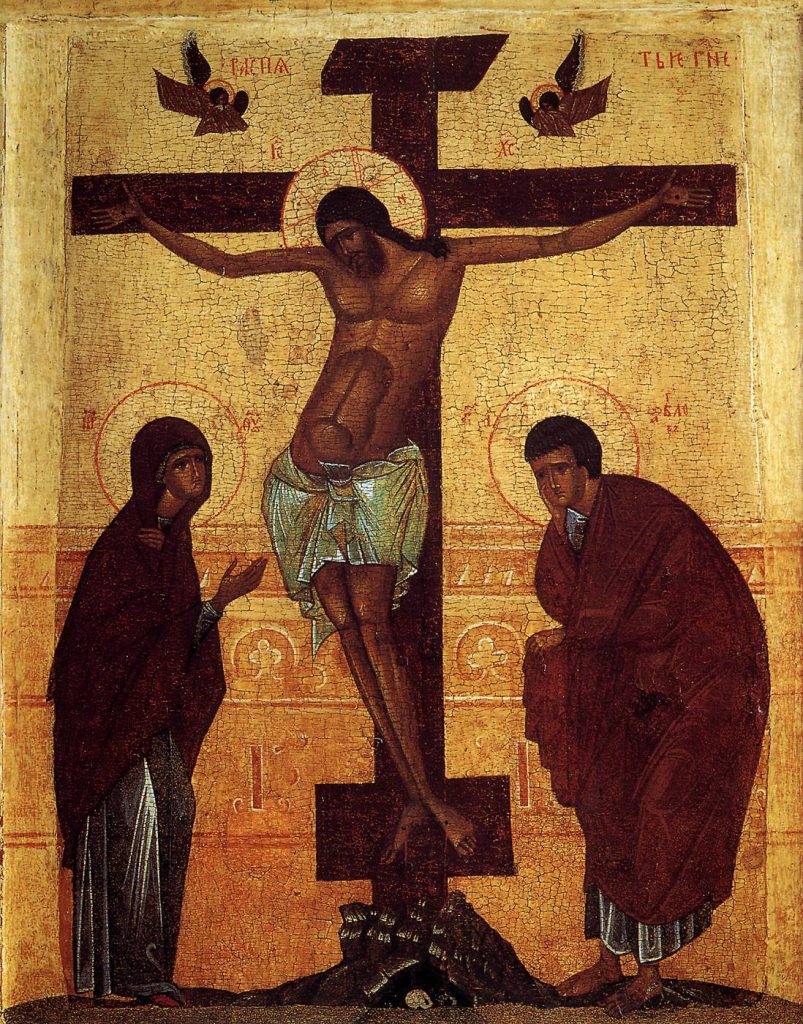
Many sunrises ago, my mother seed,
plucked by a hungry dove,
and nourished in its belly,
fell upon rocky soil, was trod
deep by a wandering sheep’s hoof,
then thirstily drank the droplets
from a summer’s rain.
Seasons passed, and many more;
my cells swelled and grew,
ever stretching toward the Light.
Then one late autumn day, sharp steel
axes cut deep into my flesh, and I fell hard
upon the rocks that had been my cradle.
In the dim months of winter, I was carried,
pulled, tugged, and flipped, with steel teeth
cutting deep into my flesh again,
until shaped square and planed smooth.
The spring-time moon shone brightly overhead,
when once again I was hauled about,
cut into two pieces, and sent upon my way.
My longest part reached the Hill first;
then came my shorter portion,
carried upon a poor Man’s bleeding shoulders;
He could barely walk beneath my weight.
My parts were joined, and then His flesh was
laid upon my own, and hammered in.
They lifted us together, and as His sinews were torn
and joints were pulled, my own flesh stretched
to hold him close, secure. A last breath sighed,
“Forgive them all,” and I knew my work was done.
His Mother wept; his friends fled, as all around
the mountains echoed the eternal cry:
“Remember that you are dust, and to dust you shall return.”
© 2017 Susan Creighton
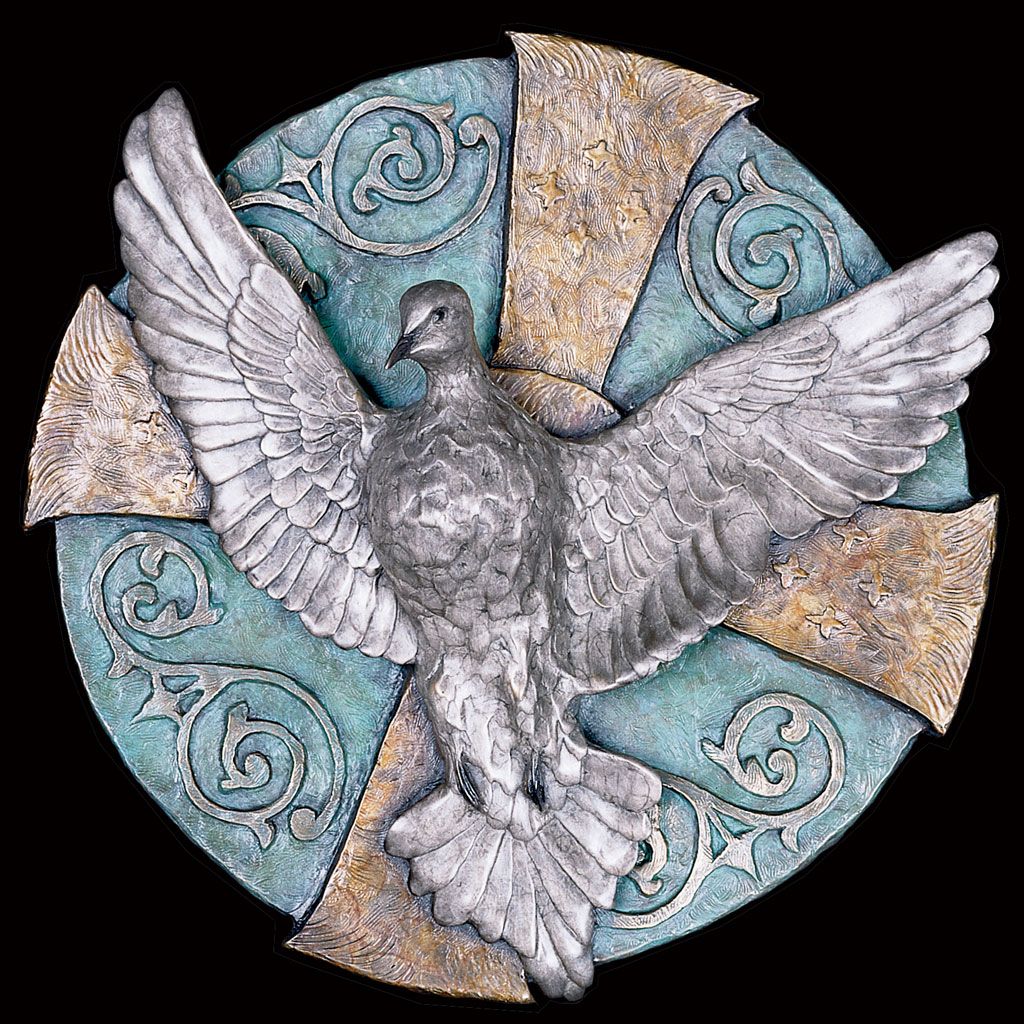
THE PRAYER OF HOLY SILENCE
When the Whole Creation groans in travail . . .
During the earliest days of Christianity, when the followers
of Jesus the Christ were under nearly constant persecution, the faithful were often
unable to gather together to celebrate the mysteries of the Eucharist. Drawing
on their inheritance from Jewish Temple and Synagogue, they continued to pray
morning and evening, often simply in family groupings or in solitude.
As the worst of the Roman persecutions abated, and
Christianity became a legal religion in the empire, regular gatherings in
churches were allowed and even encouraged. Yet many souls—both men and women—felt
called to a more deliberate and intense discipleship, and retreated to the
mountains and deserts to follow Christ through their lives of prayer in
silence, solitude, and simplicity. Eventually these hermits and anchorites became
so numerous, they began to gather together to share their lives of prayer and
service while living communally in monasteries. One of the oldest of these (in continuous
existence since the early 4th Century) is the Monastery of St.
Catherine, at the base of Mount Sinai in the Egyptian desert. http://www.sinaimonastery.com/index.php/en/history
Throughout the long history of the Earth, humanity (indeed, all of God’s creation) has been threatened in various ways, times, and places by the Four Horsemen of the Apocalypse: Death, Famine, War, Pestilence. Our time is no different. The coronavirus, COVID-19, is simply the one we face in 2020. And just as our ancestors down through the ages have done, we will fight these threats with all our medical, technological, and political might.
And we will pray, just as they did—in our churches, synagogues, and temples (when we can), in our homes with our loved ones, in our solitudes (whether by choice, or by circumstance), remembering always the elderly, the homeless, and the dying, and those who care for them.
. . . we do not know how to pray as we ought,
but the Spirit himself intercedes for us with
sighs too deep for words.
Our prayers will take many forms: the familiar and beloved
words of liturgy and hymns, or the simpler prayer of the heart, “Lord, have
mercy.”. And perhaps we may find our prayers are “too deep for words” and we
fall silent before the immensity of the perils of our time, but even more
profoundly, we fall silent before the sure and certain hope that we and the
entirety of creation are eternally held in the Heart of God.
. .
. For I am sure that neither death, nor life,
nor angels, nor principalities,
nor things present, nor things to come, nor powers,
nor height, nor depth, nor anything else in all creation,
will be able to separate us from the
love of God in Christ our Lord.
(Romans
8: 22, 26, 38)
During this time of pestilence, and the “physical distancing” it requires, perhaps some of you may wish to explore an ancient and simpler form of daily prayer, which you may find in my BREVIARY of HOLY SILENCE on the page SONGS of the SOUL. I will be posting other relevant material on this page in the near future.
With blessings and prayer for God’s creation and all who dwell
therein.
The Rev. Susan Creighton
16 March 2020
I am pleased to announce the publication of my book, DeepLight: A Memoir of the Soul.

DeepLight: A Memoir of the Soul is a rich narrative of a contemporary woman’s spiritual quest. Within the context of her extensive study of religious and mystical traditions, and her experiences as a woman, a monastic, and an Episcopal priest, Susan Creighton weaves a spiral tapestry of memories, journal entries, and poetry. Her search for an authentic practice of contemplative prayer led across cultural, historical, and religious boundaries, but is most significantly shaped and enriched by the teachings of mystics like St. John of the Cross and the ancient tradition of Orthodox ascetical theology and spiritual practice. Now living under vows as an anchorite, her memoir shares with the reader ways in which the Jesus Prayer and other spiritual practices lead to deeper contemplative prayer as well as helping us develop greater discrimination and compassion for ourselves and others.
Endorsements:
“Creighton’s fascinating memoir, which reminds me of Thomas Merton’s Seven-Storey Mountain, explores how a brain disorder can affect, even intensify, spirituality.”
–Eve LaPlante, author of Seized
“If anyone can speak truly about a personal pilgrimage into an ‘anchorhold’ of profound faith, it is Susan Creighton. . . . Her story will speak to any seeking soul as it has to mine.”
–Luci Shaw Author of Thumbprints in the Clay
“To write about the soul, you have to know it, yours, and in some deeper ways, the souls of others. When I visited Susan’s anchorhold, and sat with her there, I knew I was with someone who did.”
–Gregory H. Rickel, VIII Bishop of Olympia (Washington)
“This is not a book to be read hastily. It should be savored, wrestled with, confronted as the reader walks with [Creighton] the spiral labyrinth to the heart of all being.”
–Linda Maloney, OblSB
“DeepLight is an uncommon invitation to observe a long, rich, and difficult Christian spiritual life. Seldom is such a life uncovered with such brutal honesty, courage, and love.”
–Kathryn Rickert, School of Theology and Ministry, Seattle University
“DeepLight testifies about a lifelong intensive search for the “essence” of faith in deep prayer and union with God . . . Reading the book . . . may open up a deep inner response, allowing the gentle voice of one’s own soul to be heard in the midst of a hurrying, noisy and violent world.”
–Ingrid Schirmer, University of Hamburg
DeepLight: A Memoir of the Soul may be ordered from Wipf and Stock Publishers http://wipfandstock.com
Resource Publications
ISBN 13: 978-1-5326-4540-2
Retail: $25.00 Web price: $20.00
Pub. Date: 4/11/2018
Available on Amazon, Ingram, and Kindle by mid-May.
Susan Creighton is an anchorite in the Episcopal Diocese of Olympia. Ordained a priest in 1981, she has served in monastic, parish, and campus settings. She now fulfills her vocation under vows of silence, solitude, and simplicity, focusing her prayer and study around the ascetical and mystical teachings of the Prayer of the Heart. Her blog may be found at www.holydwelling.com, and she lives in Bellingham, Washington. Her email is anchorite@holydwelling.com
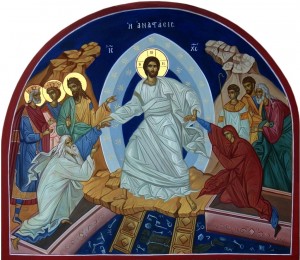
“He descended to the dead . . .”
In the midst of life we are in death;
from whom can we seek help?
From you alone, O Lord,
who by our sins are justly angered.
Holy God, Holy and Mighty,
Holy and merciful Savior,
deliver us not into the bitterness of eternal death.
Lord, you know the secrets of our hearts;
shut not your ears to our prayers,
but spare us, O Lord.
Holy God, Holy and Mighty,
Holy and merciful Savior,
deliver us not into the bitterness of eternal death.
O worthy and eternal Judge,
do not let the pains of death
turn us away from you at our last hour.
Holy God, Holy and Mighty,
Holy and merciful Savior,
deliver us not into the bitterness of eternal death.
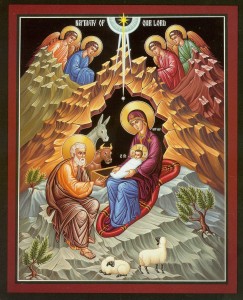
CHRISTMAS, 2015
I do not need to begin this Christmas meditation with a listing of the raucous and hurtful noises filling our world—you know it as well as I do.
And so this year my prayer for us all, near and far, friend and foe, beloved and stranger, is simply that this season of celebrating the birth of our Lord Jesus Christ might open each of our hearts to the Holy Silence of an innocent Babe born into His Father’s World, a world of beauty and abundance, a world of joy and peace, yet a world so often torn asunder by our inability, our unwillingness to recognize the eternal gifts given to all humankind, to all creation.
The Gospel of John says, “The light shines in the darkness, and the darkness has not overcome it.” Perhaps another way of saying that could be, “The Silence swallows the noise, and the noise has not overcome it.”
COME, HOLY SILENCE
Come, Lord Jesus, Come:
Fill the earth with
Holy Silence
Holy Silence-
gift of gentleness and peace
to terror and cruelty;
Holy Silence-
gift of humility and love
to arrogance and pride;
Holy Silence-
gift of compassion and joy
to hate and revenge;
Holy Silence-
gift of calm and hope
to fear and despair;
Holy Silence-
gift of strength and faith
to doubt and distrust.
Come, Lord Jesus, Come:
Fill our hearts with
Holy Silence
SC+ © 2015
NATIVITY GIFTS
Wise men from the East opened their Treasure,
offering Him gifts . . .
GOLD INCENSE MYRRH
If I could give Christ Jesus a gift, would it be GOLD,
remembering others who freeze for lack of shelter?
If I could give Christ Jesus a gift, would it be INCENSE,
remembering others who choke for lack of clean air?
If I could give Christ Jesus a gift would it be MYRRH,
remembering others who die for lack of fragrant oil?
If I could give Christ Jesus a gift, it would be GOLD,
the GOLD of SILENCE in daily prayer.
If I could give Christ Jesus a gift, it would be INCENSE,
the INCENSE of JOY offered at the altar.
If I could give Christ Jesus a gift, it would be MYRRH,
the MYRRH of TEARS for easing of wounds.
Susan Creighton, 2014
Be Silent All Flesh…the Lord has roused Himself from His Holy Dwelling. (Zechariah 2:13)
Christmas, 2010
In the midst of military, political and economic chaos in all corners of this earth:
…a small businessman in Maine, grateful for his freedom, begins a movement now numbering thousands of volunteers who lay Christmas wreaths on the tombs of fallen soldiers with a moment of silent prayer.
In the midst of crowds thronging the malls and holiday parties, with the gaiety escalating to near-hysteria:
…a woman gathers her courage, and calls for silence when a child is overwhelmed by the noise and unchecked emotions swirling around him.
In the midst of beeping monitors and flashing lights required by a frightening series of medical tests:
…a gentle nurse promises to let a patient sleep in silence through the night.
In the midst of strident voices—left and right—decrying this or that current (and perhaps soon-to-be-forgotten) cultural battle:
…a 7th Century monk prays: “O Mystery exalted beyond silence, gather my mind into the silence of prayer, free from the concerns of this world.”[1]
Yes…Let all flesh be silent. For in these small pockets of silence, all too rare and fleeting, hidden away and often unnoticed—in these precious moments between breaths when we can hear our own hearts beat . . . now is the time to keep silence.
For it is only in such silence that the Holy One can rouse from His Holy Dwelling in the Heart of God, and come among us to be born in a poor stable in Bethlehem. Only in such silence can the Holy One bring strength and courage to the heart of a soldier keeping watch in the mountains of Afghanistan. Only in such silence can the touch of the Holy One comfort the heart of a little child surrounded by poverty, or despair. Only in such silence can the Holy One enter our own hearts, and find once again His own Holy Dwelling.
I do pray we will all find those moments of silence when the Lord enters His Holy Dwelling within our hearts.
Susan Creighton+
[1] Isaac of Ninevah, 7th C. Syria: in The Syriac Fathers on Prayer and the Spiritual Life, translated by Sebastian Brock, (Kalamazoo: Cistercian Publications, 1987)
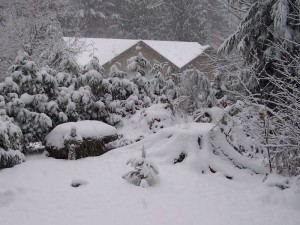
NOTE: I wrote this meditation over thirty years ago…only now am I beginning to understand it.
The Rev’d. Susan Creighton, Anchorite
Winter is an odd time to begin anything: we think of it as the last of the Four Seasons; as a metaphor for the closing years of a long life; as a time of hibernation, stillness, and death. And as we ourselves approach this time of year, or time of life, we may find we would rather hearken back to the newness and hopefulness of Spring, to the exuberance of Summer, to the glorious abundance of Autumn. Ah, those gaudy, golden months of Autumn, when the trees fling themselves into an oblation of color, shouting with all the energy from the summer of their youth: “Glorify the Lord, O mountains and hills, and all that grows upon the earth, praise him and highly exalt him for ever.”
But the day comes when that shout is muted by the gray shawl of low hanging clouds, slipping round the hills, and bringing soft, tentative rain. Slowly, bolstered by a rush of wind, the rain gathers courage, daring to challenge the riot of color. Where once an occasional leaf floated casually to earth, slow and relaxed as a Sunday driver, now a blizzard of gold and red strips the trees of the last vestiges of life. A vast silence permeates the waiting forest, as final preparations are made for the pall of snow that soon will cloak the ugliness of naked death.
Then one morning we wake to an icy moonlight and know that Winter is upon us. The earth lies still and silent, all sounds muted by the cloak of snow, all life seemingly brought to a standstill: the birds do not sing; the woodchucks lie snug in their burrows; the woodland streams are frozen in their beds. And we find that this awesome stillness penetrates into our own hearts: Winter has entered into us, and into our prayer.
For our life of prayer also has seasons: the tentative Spring of newborn faith, just beginning to hope; the full-blown Summer of certainty and conviction, when we dwell in the full radiance of the Light of God. And of course there is the glorious Autumn of prayer, when we reap the harvest of long seasons of spiritual planting and cultivating; when we move beyond petition to praise; beyond penance to the mature knowledge of the love of God.
Then, as inevitably as the seasons of the earth, comes a time of Winter to our life of prayer, our life in God. Sometimes this spiritual Winter slips upon us almost unnoticed, like the slow shortening of the hours of daylight. Or, it may come to our prayer like the furious gust of a late hurricane, tearing from us all certainty, all fruitfulness, and battering us into a depression and bleakness than can be likened only to death. But whether our Winter comes slowly and unnoticed, or furiously and devastatingly, we at last find ourselves in a place of immense stillness.
The Winter of prayer is a place of grayness, yet with the stark contrasts of icy blackness and brilliant whiteness. Just as the bare skeletons of the trees stand silhouetted against dull gray sky, we find our prayer has become naked and stripped and skeletal. We find no green hope of life in our prayer, let alone any evidence of fruit or mature foliage. We cannot pray, and so we simply say prayers, depending upon the bare bones of the faith of the Church, and the promise of the sacraments to carry us through the death of our own prayer.
Then, slowly, as the Winter wears on, we begin to find comfort in its very stillness, and shelter in the blanket of snow which has brought rest and silence to our prayer. We find that in the silence of this spiritual Winter, we are listening more acutely to the voice of God. And while we feel ourselves frozen into the stillness of Winter, we yet find the Water of Life flowing deep within us, and deep within the bosom of the earth.
As we move more deeply into this Winter, we find that the place of stillness and death has been transformed into one of waiting and rest. As the trees must shed their leaves and draw back their sap to prepare for another season of life and growth, so, too, we must allow our prayer such a Winter. For Winter does not mean that life has departed from the earth, nor has faith departed from our prayer. Rather, it is a time of waiting, and rest, and even of death, in which we pause and prepare for the rebirth of Spring, the renewal and greater growth of the next season of prayer. Winter, as the culmination of the year, and the completion of a life span, is also the beginning of a new cycle of seasons, the beginning of New Life in Christ. Winter brings a time of deep silence to our souls, a silence out of which we can proclaim, “Glorify the Lord, O chill and cold, drops of dew and flakes of snow. Frost and cold, ice and sleet, glorify the Lord, praise him and highly exalt him for ever.”